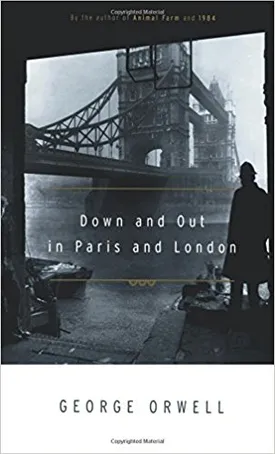George Orwell
George Orwell, born Eric Arthur Blair in June of 1903, was a British political writer and novelist whose commentaries on social injustice and the dangers of authoritarianism have transcended time, appearing in books such as Homage to Catalonia, 1984, and Animal Farm. His commentaries have earned him the title of one of the greatest English writers of the 20th century.
Orwell was born in India to a British middle-class family. His family returned to England in 1907 and settled in a small village near London. After his graduation from Eton College, he became a student of the Indian Imperial Police in Burma. While polishing his skills as a police officer, he lived among the poverty-stricken Burmese. This experience turned his attention to his writing. He wrote many essays and articles after returning to England in 1927. His works are a mixture of politics, sociology, and philosophy that reveal his pain and contribute to the perception of English society of the era.
In 1934, Orwell set off on a journey to France, Spain, and England to document social injustice in the form of reportage. This period of exploration and writing led to his great works Homage to Catalonia and Down and Out in Paris and London in 1937. These works were based on his experiences in Spain and France and expressed his growing concern about inequality.
The 1940s was a pivotal decade for Orwell’s writing. In 1945, he published Animal Farm, a political allegory of Soviet totalitarianism. This famous novel shows Orwell’s distrust for any form of governmental oppression. His most famous work 1984 followed in 1949. This novel is a prophetic dystopian account of the future in which a totalitarian state slowly erodes the civil liberties of its citizens. This work solidified Orwell’s status as a political writer and gained cult-like status over the decades.
Unlike other twentieth-century authors, Orwell kept his faith in the democratic system and worked to find its loopholes and limitations. He exposed these limitations in his writings, such as A Clergyman's Daughter (1935), Keep the Aspidistra Flying (1936), and Coming Up for Air (1939). His works brought attention to the common struggles of the working class and the vulnerability of human rights.
He was a conscientious, liberal opponent of Stalinism and Leninism, but also a sharp critic of British colonialism, capitalism, and economic marginalization, and a vocal advocate for free expression and social justice.
George Orwell died in 1950 at the age of 46, leaving behind an important body of work that continues to provoke both thoughtful contemplation and lively discussion regarding social justice and the state of our society. He is remembered for his powerful words and correspondences that allow readers to see both the fragility and resilience of the human condition. His words remain as vital and provocative today as when they were first written.




